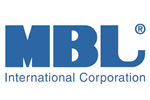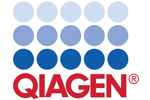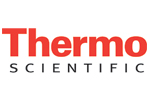
Tuesday, 26 April 201108:00 | Registration | |
Session: Epigenetic Processes in Disease and Epigenomics |
| | 09:30 |  | Keynote Presentation Epigenetics, Imprinting, and Disease Susceptibility
Randy Jirtle, Professor, Duke University Medical Center, United States of America
Evidence will be presented that susceptibility to adult onset diseases and neurological disorders is influenced during early development by environmentally-induced epigenetic changes in imprinted genes and those with metastable epialleles. |
| 10:00 | Epigenetics of Colorectal Cancer: Deciphering Complex Multifactorial Diseases
Shuji Ogino, Associate Professor, Dana Farber Cancer Institute, United States of America
Each colorectal cancer has a unique set of epigenetic alterations. We are deciphering complex interrelationship between etiologic factors, epigenetic alterations and tumor behavior. A better understanding of heterogeneity of carcinogenic process contributes to personalized prevention and therapy. | 10:30 | Coffee Break and Networking in the Exhibition Hall | 11:15 | Methylation of Cell-Free circulating DNA From Plasma as a Biomarker for Cancer Diagnosis and Treatment Monitoring
Victor Levenson, Associate Professor, Rush University Medical Center, United States of America
A novel technology (Methylation Detection or MethDet) can assess genome-wide methylation and yet requires as little as 20 cells. Applications of MethDet for biomarker development in the areas of detection, diagnosis, and monitoring will be discussed. | 11:45 | Evolution of Eukaryotic DNA Methylation
Daniel Zilberman, Assistant Professor, University of California, United States of America
We quantified DNA methylation in seventeen eukaryotic genomes and show that extant DNA methylation systems are mosaics of conserved and derived features, and that gene body methylation is an ancient property of eukaryotic genomes. | 12:15 |  Technology Spotlight: Technology Spotlight:
RiboCluster ProfilerTM "RIP-Chip" and "RiboTrap" : Immunoaffinity tool to elucidate mRNA/microRNA regulatory network
Wushouer Ouerkaxi, Director, Mbl International Corporation
| 12:30 | Lunch and Networking in the Exhibition Hall | 13:00 |  Free Workshop Free Workshop
The miRNA Revolution Tools for miRNA purification and expression profiling
Eric Lader, Senior Director
| 13:15 |  Free Workshop Free Workshop
Experimental Workflows for Successful miRNA Research Applications
James Goldmeyer, Technical Marketing Scientist
| 13:30 | Poster Session | 14:15 |  | Keynote Presentation Epigenome-Wide Association Studies
John Greally, Professor, Albert Einstein College of Medicine, United States of America
The challenges of Epigenome-wide Association Studies in human disease are discussed in terms of assay choice, study design, sample requirements, and data management and analysis. |
| |
Session: Chromatin Mechanism in Epigenetic Marking |
| | 14:45 | The Genomics of Ribosomal DNA: Novel Insights into Chromatin Structure and Disease Pathogenesis
Peter Scacheri, Assistant Professor, Case Western Reserve University, United States of America
| 15:15 | Coffee Break and Networking in the Exhibition Hall | 16:00 | The Epigenetics of DNA Repair
Brendan Price, Division of Genome Stability and DNA Repair, Dana Farber Cancer Institute, United States of America
DNA repair requires significant alteration in chromatin architecture. Here, we discuss a crucial role for histone modifications in altering chromatin structure at sites of DNA damage, and explain how dynamic regulation of epigenetic marks is required for cells to detect and repair DNA double-strand breaks. | |
Session: Nuclear Dynamics and Long-Range Control |
| | 16:30 | Epigenetic Inheritance of Centromere Domains
Yamini Dalal, Group Director, National Institutes oh Health, United States of America
Dr. Dalal's group investigates mechanisms by which histone variants encode epigenetic function and inheritance of specialized regions of the human genome. Recent work from her lab shows that centromeres may be defined by unusual histone variant dynamics during mitosis and replication. | 17:00 | Epigenetics and microRNA Market Trends
Enal Razvi, Managing Director, Select Biosciences Inc, United States of America
I present some of our most recent market research data and analysis characterizing the epigenetics and microRNA markets. These data frame the life science research marketplace, as well as the deployment of epigenetics signatures and microRNA associations for the development of diagnostics and therapeutics. | 17:30 | Drinks Reception |
Wednesday, 27 April 201108:00 | Registration | |
Session: Non-Coding RNA and Gene Silencing |
| | 09:00 |  | Keynote Presentation Novel Discoveries on Gene Silencing by SIn3, HP1 and Polycomb
Raul Urrutia, Director of Epigenetics and Imprinting Laboratory, Epigenetics and Chromatin Dynamics Laboratory, United States of America
This work has results in advancing our basic research knowledge in the area of chromatin dynamics and epigenetics as well as in the identification of novel forms of diabetes and the regulation of cancer-related pathways. |
| 09:30 | Capturing Ephemeral Hemimethylation at CpG and non-CpG Cytosines: Insights From Molecules and Math
Diane Genereux, Post Doctoral Associate, University of Washington, United States of America
Double-stranded DNA methylation patterns provide new insights into the behavior of the DNA methyltransferases, the fidelity of the epigenetic information they transmit, and the implications of DNA methylation dynamics for gene-expression states in populations of cells and populations of humans. | 10:00 | Using Next-Gen Sequencing to Uncover Patterns of Allele-Specific Expression
Sergio Baranzini, Associate Professor, University of California San Francisco, United States of America
Allelic imbalance refers to the unequal expression from maternal and paternal chromosomes of non-imprinted genes. Here I will discuss data from next generation sequencing of a pair of monozygotic twins discordant for the autoimmune disorder multiple sclerosis showing differential allelic expression in several genes. | 10:30 | Coffee and Networking in the Exhibition Hall | 11:15 | Noncoding RNAs as Drug Targets
Claes Wahlestedt, Director, Scripps Research Institute, United States of America
| 11:45 | Hyperglycemia Mediated Chromatin Modifications
Assam El-Osta, Head, Director of Epigenomics, Baker IDI Heart and Diabetes Institute, Australia
Defining the molecular events that lead to a phenomenon described as “metabolic memory” which is associated with endothelial cell dysfunction will provide critical insights into the interpretation of persistent epigenetic gene-activating events. | 12:15 | Technology Spotlight | 12:30 | Lunch and Networking in the Exhibition Hall | 12:45 |  Free Workshop Free Workshop
Michelson Prize & Grants Information Session Learn about the $75 million challenge!
Katy Palfrey,
| 13:30 | Poster Session | |
Session: Epigenetic Re-Programming, Stem Cells and Genome Dynamics |
| | 15:00 | Early life Adversity and Adult DNA Methylation
Moshe Szyf, Professor, McGill University, Canada
| 15:30 | Coffee and Networking in the Exhibition Hall | 16:00 | miRNA Modifications Play a Pivotal Role in B-cell Malignancies
Aldo Roccaro, Senior Scientist, Dana Farber Cancer Institute, United States of America
Epigenetic modifications play a pivotal role in the pathogenesis of hematologic malignancies, including Waldesntrom’s Macroglobulinemia (WM) and Multiple Myeloma (MM). MicroRNA (miRNA) expression profiling of primary WM and MM tumor cells has demonstrated a clear miRNA signature in these B-cell malignancies. Moreover, functional studies have revealed the crucial role of miRNA-155 and miRNA-15a/16-1 in regulating the biology of WM and MM, respectively, thus providing the rational for using miRNA-based therapeutic strategies in these diseases. | 16:30 | The Epigenetic Regulation of microRNA Genes and Their Role in Cell Invasion and Motility in Human Melanomas
Ranjan Perera, Associate Professor, Scientific Director Genomics and Bioinformatics, Sanford Burnham Medical Research Institute, United States of America
The present work highlights the DNA methylation of noncoding RNAs and their role in cell invasion and motility in human melanomas. | 17:00 | Close of Conference |
|

 Add to Calendar ▼2011-04-26 00:00:002011-04-27 00:00:00Europe/LondonEpigenetics World CongressEpigenetics World Congress in BostonBostonSELECTBIOenquiries@selectbiosciences.com
Add to Calendar ▼2011-04-26 00:00:002011-04-27 00:00:00Europe/LondonEpigenetics World CongressEpigenetics World Congress in BostonBostonSELECTBIOenquiries@selectbiosciences.com